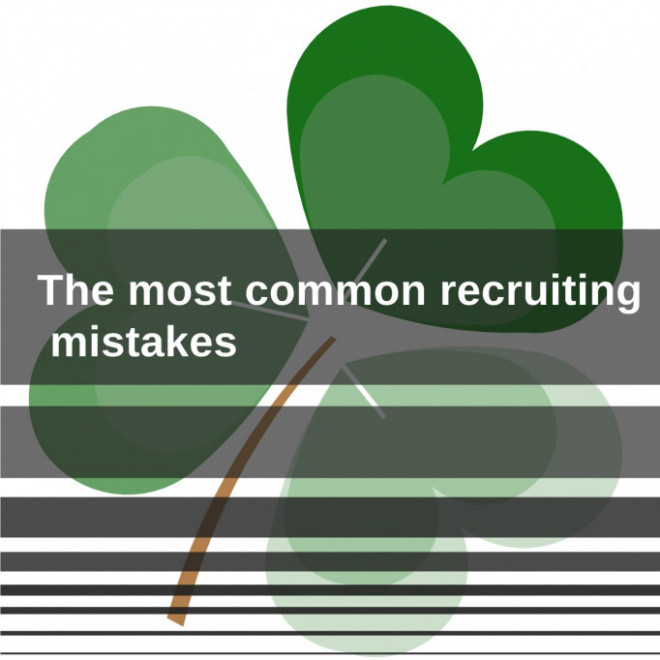Are you also struggling with the lack of suitable candidates for positions? Specialists are very demanding in relation to the entire recruitment process, so it is worth knowing their expectations. What are the most common accusations against the recruiter's work?
Here is a list of the 8 most common mistakes made by an recruiter:
Lack of details in the advertisement
Professionals don't like long, descriptive job offers. Therefore, they expect only specific information from the advertisement, which will allow them to quickly select whether a given offer interests them at all. The most important of them are, of course, the required technologies (along with the level of knowledge), the form of employment, information about the possibility of remote work, as well as the salary range.
Non-transparent job offers
In addition, the content of the advertisement is very important. It is a good idea to divide the offer into several sections, such as: "Job description", "Requirements", "Welcome", "Additional information", etc. So what should a job advertisement look like ? It seems to me that many of them would probably give an example ... No Fluff Jobs form!
Ignorance of the industry
Recruiters are often accused of not knowing the specifics of the industry for which they are looking for employees. So if you want to find the right candidates, you need to know what is important to them and what information they expect from you. What's more, if you are looking for an employee for an IT position, you will need to know what technologies and programming languages fit a specific position. Thanks to this, you will not only find the right candidate, but you will also be able to help those who have skills not suited to the position they are applying for and, for example ... propose something else.
Lack of knowledge of the position
It is not difficult to predict that during a job interview, the candidate will ask about the specificity of the job they are applying for. Therefore - regardless of the industry - each recruiter must have basic knowledge about the company for which he is looking for employees, as well as know the exact requirements of the employer for a specific position. When it comes to IT - all information about the project, technologies used, and about career paths in a given company will be extremely important here.
Asking wrongly chosen questions
If you already know the specifics of the industry, you probably know that there are some questions that specialists are even allergic to. Creativity questions like "What would you do if you found a penguin in the freezer?" it is definitely not this direction! If you want to make a good impression on the candidate, try to ask as few questions as possible not related to work, work experience, skills, etc.
Extending the recruitment process
Every person looking for a job would like to know the decision about their application as soon as possible. Unfortunately, some recruitments take much longer than they should, and this may result in a person not being interested in a particular offer anymore, because they will choose another one. It is for this reason, that it is extremely important that recruiting proceeds quickly and in a case. Therefore, it is worth planning the entire process in advance and sticking to a strictly prepared schedule.
Lack of information about the recruitment stages
The candidate should be kept informed about the result of each stage of the recruitment process, from the moment of receiving the application. Moreover, he should be made aware of how many stages this whole process consists of, as well as the approximate duration of each of them. Such action will help to prevent the situation referred to in point 6, when the candidate resigns from a given offer in favor of the one with which the recruitment process was shorter.
Lack of constructive feedback in case of rejection of a candidate
Each candidate, especially those who know their value on the labor market, expects information about the completed recruitment process and its result. If you do not want to alienate people who did not get a job with him, you should write a few words of justification why it was not decided to apply for them. Such a message can help them a lot in subsequent recruitment processes.
What do you think about the mistakes mentioned above? Do you ever commit any of them? We are waiting for your comments!


 Posted on Jul 17, 2020 by Anna
Posted on Jul 17, 2020 by Anna


